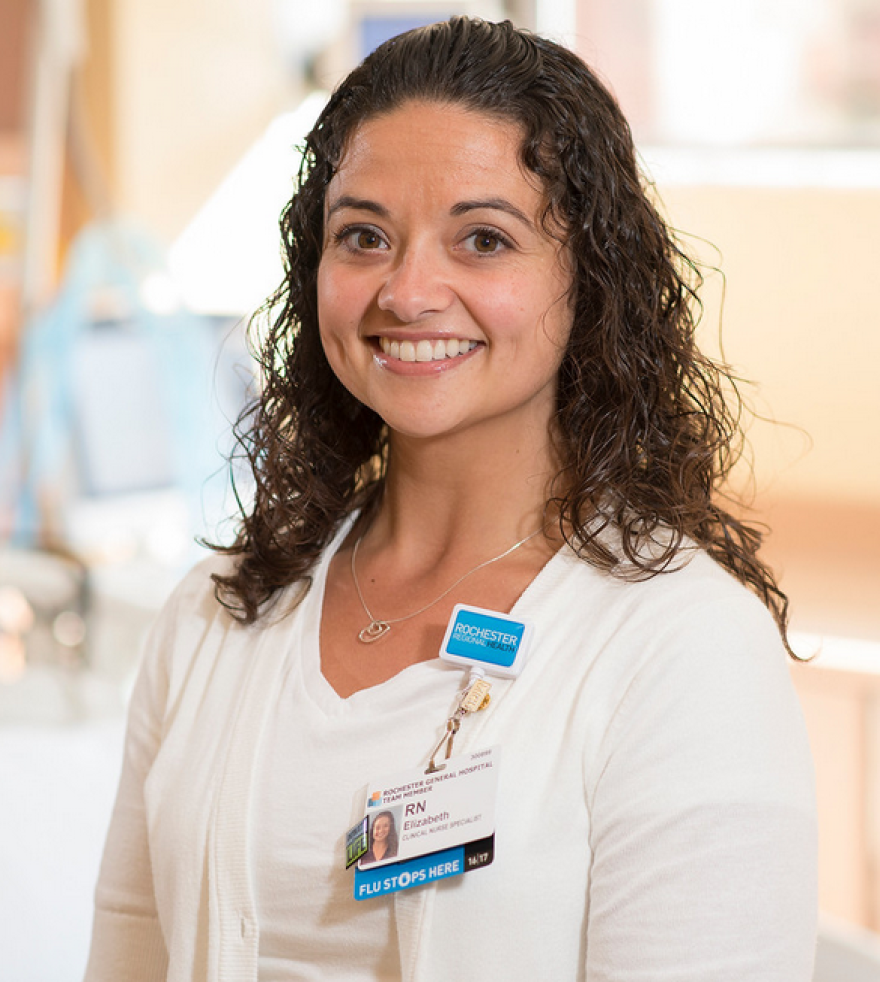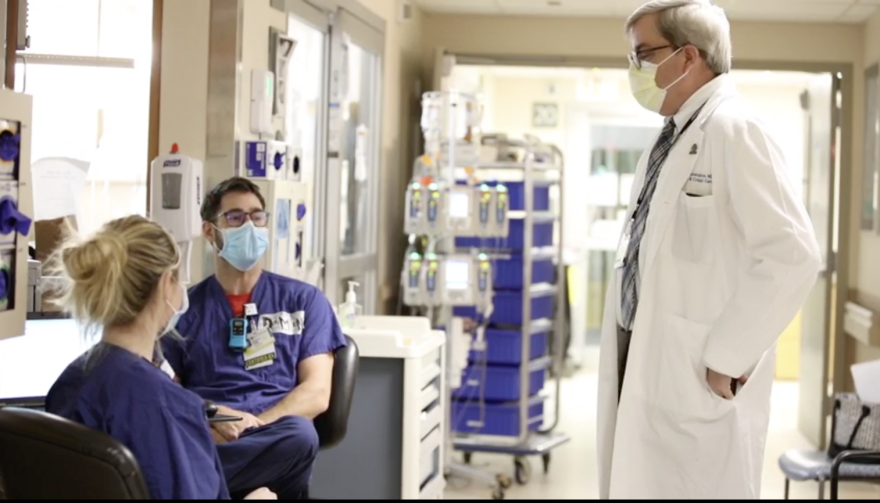Health care workers around the globe have endured prolonged trauma throughout the pandemic. Long shifts. Difficult cases. At times hospital rooms and hallways overflowing with patients with no end in sight.
While psychology experts warn that there are early indicators of post-traumatic stress disorder among medical workers, there are also newly proposed roads to healing.
“There’s a huge amount of stress that’s being placed on everyone here in the hospital. And it’s sort of an insidious thing because it’s affecting everyone at the same time, ”said Matt Ferrantino, a lung specialist at Unity Hospital who works in the intensive care unit.
Before the pandemic, the tough days -- ones that would leave staff emotionally and physically exhausted -- used to be spread out. Since not everyone was going through a tough day at the same time, other staff could lend support. That has not been the case this past year.
Just after Halloween, Ferrantino fell ill with COVID-19. He was hospitalized -- taken care of by the same people he works with. That familiarity was comforting, he says, but to him, the details are fuzzy.
“Being an ICU physician I was very familiar with what to expect and what the potential course my symptoms could go in, which in some ways was good and in some ways was bad,” he said. “I wish I could tell you more about my hospital stay but I honestly don’t remember being in the hospital too much which may be a protective mechanism.”

It took about two months before he felt like himself again. Ferrantino said that because of COVID-19, there’s been more consideration now for post-traumatic symptoms in patients after an ICU stay.
“A degree of PTSD, of mood disturbance, after a recovery from illness. Even if the physical symptoms have resolved,” he said. “That’s a very common and a very expected thing and it’s something that we have ways to address and it needs to be recognized.”
However, for doctors, nurses, paramedics and others, traumatic exposure has been a constant. It’s not one single experience, it's multiple.
According to the American Psychological Association, studies of post-traumatic stress in health care workers point to an urgent need for mental health support, and trauma-informed care.
PTSD comes in various forms, and it can look different from person to person. Symptoms can include flashbacks, nightmares, and intrusive thoughts.
“They might be very biased thoughts where they sit there and say “well I could have stopped this if I’d just done X, when in actuality a lot of these ‘if you did X,’ it’s not going to stop a trauma from happening.” said Dr. Garry Spink, a psychologist with Genesee Mental Health Center.
There’s also a relatively newer term called Complex PTSD, which can come from repeated trauma, usually at a young age. Some symptoms can include difficulty controlling emotions and having “emotional flashbacks” where a person responds to their present situation as though it is the initial trauma.
In PTSD and Complex PTSD, suicidal feelings and feelings of hopelessness can be present.
At Rochester General Hospital, nurse Elizabeth Duxbury has been working in the ICU through the pandemic. She comes from a lineage of carers; her one grandmother was a World War II nurse.
During the second surge, as ICUs were filling up with COVID-19 patients, she lost her other grandmother.

“She led a wonderful life, but she died with limited exposure to us, which is tough,” she said. “When you bring that into the hospital, it’s remembering and being there for the families who can’t physically be here.”
Like Duxbury, other medical staff were enduring the loss of family and friends. Loved ones were falling sick as they continued to care for patients with the same virus at the hospital, some on ventilators.
At that time nearly everything was closed. No gyms. No movie theatres. No gatherings. Medical staff were separated from their families for weeks on end to reduce exposure. Without those outlets, it’s harder to manage stress.
While the relationship between chronic stress and illness is complex, it can suppress the immune system and correlate with disorders like peptic ulcers, and increased risk of viral infections, according to the National Center for Biotechnology Information.
Despite the absence of those stress-relieving activities, something did help. A series of Zoom calls called Nurses helping nurses. It’s an ongoing series providing a space for RGH staff to speak candidly about what they’ve been going through.
“It really was a way to find that resilience. To really have an open forum to talk through and gain that strength again among ourselves,” Duxbury said.
Normalizing shared experiences that have been intense and potentially traumatizing can help put it into context, said Spink.
“Just kinda saying yes, that is happening to other people sometimes takes the power of that panic or that anxiety away,” he said.
Months into the pandemic, psychologists who were embedded with doctors and nurses at the University of Rochester Medical Center were seeing signs of burnout, depression, distress, and lack of emotion, according to the APA.
While it’s still too soon to say who will and won’t develop PTSD, The APA says that approaching COVID-19 related trauma in group and community settings could be far more effective at helping people heal, than one-on-one therapies alone.
For Duxbury, while she’s coping with the loss of her grandmother, the loss of patients, and the exhaustion, she’s found solace in small things. Little moments.
“When I can have a good conversation with a family, with a patient, with a team member, with someone I work with everyday, it’s finding those little pieces and doing the same thing outside of here,” she said.




